The 8 actions to make Germany evidence-informed
In an empirical research project, DEval anlaysed in how far German development cooperation is evidence-informed. There are eight actions (or implications), that follow from our empirical analysis, if Germany wants to systematically become more evidence-informed.
Acknowledging that there are no “silver bullets”, the 8 actions are an integrated approach to foster systematic change. The most important barriers identified in our analysis are all adressed parallely through our approach.
Action 1: Identify relevant topics and evidence demands to guide RIE implementation.
Currently, there is no systematic approach or guidance as to when to conduct an RIE in GDC. We therefore propose identifying topics and evidence needs that are strategically relevant to GDC such that a number of RIEs could be conducted in these relevant topics. Since RIE initiation and evidence take-up are very closely connected and mutually dependent, systematically conducting RIE in relevant areas will also make evidence take-up more likely (e.g. in the course of identifying evidence needs or while preparing an RIE).
Please see our report for a range of possible options how this action could be implemented.
Action 2: Raise awareness and develop capacity on RIE implementation and evidence take-up.
We encourage raising awareness and developing capacity for RIE and evidence take-up. Our evidence shows that individual awareness and capacity are critical for the initiation of RIEs and take-up of (rigorous) evidence. Given that RIE is only one (important) element of the evaluation toolbox, we propose combining RIE capacity development with building “evidence literacy” in general. These activities would foster a culture of evidence and learning, and create demand for rigorous evidence where it can be helpful, without overextending the tool to areas where it is not the first choice.
Please see our report for a range of possible options how this action could be implemented.
Action 3: Establishing a public RIE database to strengthen RIE knowledge management.
Our analysis shows, that it would be useful to establish a publicly available RIE database to strengthen RIE knowledge management within GDC. Such a database should pool RIEs conducted within GDC but also link up to the global RIE evidence base. Currently, such a central database has been prepared at Deval (please see our new Rigorous-Evidence-Database, RED).
Action 4: Install a support structure for knowledge brokering and to support RIE implementation.
This support structure could be responsible for actions 4.1 to 4.3:
Action 4.1: Synthesise existing global and self-generated evidence.
Action 4.2: Convert evidence into simple and user-friendly formats.
Action 4.3: Provide practical support and tools for RIE initiation and implementation.
A support structure should be set up to support both practitioners and decision-makers in GDC along the cycle of evidence generation and take-up. We propose to build up this support structure as a cooperative model. In such a model, existing decentralised structures in the IOs and CSOs would be further strengthened where they are economical and necessary and evidence needs could be identified more easily. At the same time, a central structure could (a) coordinate efforts, (b) promote inter-organisational learning, (c) provide advice to those organisations that do not have support units themselves, and (d) serve as a point of contact for BMZ. Such a structure could build on experiences at DIE and DEval.
Please see our report for more information on actions 4.1 to 4.3.
Action 5: Require or incentivise a systematic check of whether projects are suitable for RIE.
Currently, there is no defined point in time to check the possibility or necessity of conducting an RIE when projects are established or extended. We therefore propose defining a requirement for examining the possibility of initiating an RIE within the process of planning and implementing GDC projects. Alternatively or additionally, there should be strong positive incentives for conducting such a feasibility and utility check on RIE implementation.
Please see our report for a range of possible options how this action could be implemented.
Action 6: Require or incentivise the take-up of the best available (rigorous) evidence.
Currently, there is no clearly defined and systematic approach as to when, in the process of planning and implementing GDC projects, available evidence should be consulted and used. We therefore propose defining a requirement or rule for evidence review and take-up. The goal should be to solidly base GDC projects on the best available (rigorous) evidence. Alternatively or additionally, there should be strong positive incentives for take-up of the best available (rigorous) evidence.
Please see our report for a range of possible options how this action could be implemented.
Action 7: Provide additional resources dedicated to RIE and to using (rigorous) evidence.
Limited resources are both a fundamental barrier to RIE initiation and to evidence take-up. We therefore propose allocating additional resources: (a) to implement the proposed set of measures (implications 1–8) and (b) to fund the implementation of RIEs. This will also signal leadership support. One option is for BMZ to install a central fund dedicated to RIE implementation. The implementation of such a funding program is planned for 2022 (see here for this RIE Funding Program).
Please see our report for a range of possible options how this action could be implemented.
Action 8: Jointly reflect on the status of implementation and success of the implications proposed in this study after 1.5 to 2 years.
In line with a culture of evidence and learning, we propose to jointly reflect on the implementation status and success of implications 1 to 7 after 1.5 to 2 years. This is intended to allow for timely adjustments in BMZ’s efforts towards more systematic and appropriate RIE implementation and evidence take-up.









